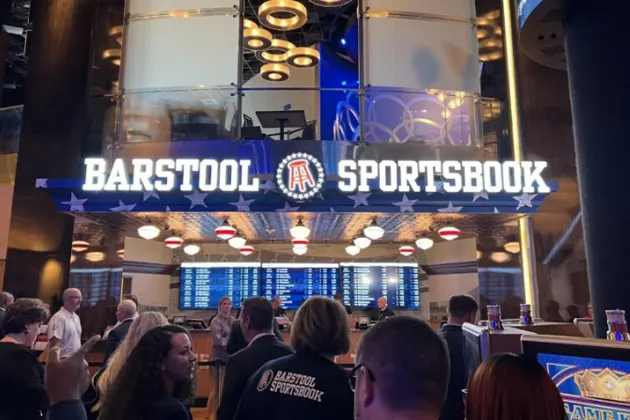Missouri is currently at a crossroads when it comes to legalizing sports betting. Across the United States, the sports betting industry has seen explosive growth since the Supreme Court struck down the Professional and Amateur Sports Protection Act in 2018. As states like Illinois, Iowa, and Kansas reap economic benefits from legal wagering, Missouri is considering legislation that could bring similar opportunities. However, the journey toward legalization involves both exciting prospects and significant challenges.
Economic Growth and Revenue Generation
Legal sports betting in Missouri could unlock a substantial revenue stream. Economic analysts project that the state could generate between $40 million and $50 million annually in tax revenue from a regulated sports wagering market. These estimates are based on data from other states with comparable populations and fan engagement levels. A robust legal framework would allow Missouri to tap into this revenue, potentially funding education, infrastructure, and community programs.
Neighboring states like Illinois and Iowa offer clear examples of sports betting’s economic impact. Illinois legalized sports wagering in March 2020 and has since become one of the top betting markets in the country, generating over $1.1 billion (about $3.4 per person in the US) in tax revenue by the end of 2023. Iowa, which legalized sports betting in August 2019, collected approximately $22.5 million in tax revenue in 2023 alone. Missouri could experience similar fiscal gains by leveraging its sports culture and population.
Job Creation
The legalization of sports betting in Missouri would drive demand for additional staffing at existing casinos. Dealers, floor supervisors, security personnel, and hospitality workers would be needed to manage sportsbook areas. Based on employment growth in other states, Missouri casinos could collectively add over 500 new jobs within the first year of legal operations.
Legal sports betting would also stimulate job growth beyond physical casinos. Sportsbooks require marketing professionals, data analysts, oddsmakers, and customer support representatives. Mobile betting platforms such as DraftKings, FanDuel, and BetMGM have created thousands of jobs nationwide. Integrating Missouri betting apps into the state’s market could contribute to at least 300 digital and remote positions.
Legislative Hurdles
Missouri’s path toward legalized sports betting has been complicated by political disagreements. As of 2024, sports betting remains illegal in the state, despite multiple bills introduced in the Missouri General Assembly. Key legislative sessions in 2021, 2022, and 2023 saw proposed bills stall due to disputes over tax rates and the inclusion of video lottery terminals.
Resistance from anti-gambling organizations and certain policymakers poses an additional challenge. Groups like the Missouri Coalition Against Gambling Expansion argue that increased access to betting could lead to gambling addiction and financial hardship for families. Balancing economic incentives with responsible gambling safeguards remains a contentious issue.
Regulatory Framework
Establishing a comprehensive regulatory structure would be crucial to the success of sports betting in Missouri. Regulatory bodies would need to ensure that operators adhere to licensing requirements, consumer protection policies, and anti-money laundering protocols. States like New Jersey, which generated over $2 billion (about $6.2 per person in the US) in tax revenue from sports betting since 2018, attribute much of their success to transparent and enforceable regulations.
A legal market would also serve to curb unregulated betting activities. Missouri residents currently place an estimated $400 million annually in illegal sports wagers through offshore platforms and local bookies. Legalization, combined with strict enforcement, could redirect this money into state-controlled and taxed avenues.
Competition with Neighboring States
Illinois’ thriving sports betting industry presents a direct competitive threat to Missouri. Residents in cities like St. Louis often travel across state lines to place legal bets in Illinois. This outflow of bettors deprives Missouri of tax revenue and consumer spending that could otherwise support local businesses and public services.
Similarly, western Missouri faces competition from Iowa, which legalized sports betting in 2019. Bettors in cities like Kansas City frequently visit Iowa casinos or use Iowa-based mobile platforms to place wagers. This cross-border activity underscores the urgency for Missouri to establish its own legal framework.
Missouri’s Strategic Location and Passionate Sports Fanbase
The Kansas City Chiefs have cultivated one of the NFL’s most loyal fan bases. Arrowhead Stadium consistently ranks among the loudest venues in professional sports, with crowd noise reaching 142.2 decibels in 2014. The team’s recent success, including Super Bowl victories in 2019 and 2022, has only strengthened fan engagement. Legalized sports betting would allow Chiefs supporters to further connect with their favorite team.
Baseball holds a special place in Missouri, particularly due to the legacy of the St. Louis Cardinals. With 11 World Series titles, the Cardinals rank second only to the New York Yankees. Busch Stadium draws over 3 million fans annually, demonstrating the team’s enduring popularity. Sports wagering could capitalize on this enthusiasm, driving betting activity during the MLB season.
Hockey also enjoys a dedicated following in Missouri, led by the St. Louis Blues. The team secured its first Stanley Cup Championship in 2019, igniting city-wide celebrations. The Blues’ success has fostered a thriving hockey culture, positioning St. Louis as a potential hub for NHL-related betting.
Importance of Understanding Opportunities and Obstacles
While the financial benefits of sports betting are substantial, policymakers must consider the broader social implications. Problem gambling rates tend to increase following legalization, with studies indicating that up to 2% of U.S. adults struggle with gambling disorders. Missouri would need to invest in educational campaigns and support services to mitigate these risks.
The road to legal sports betting requires consensus among lawmakers, casinos, and community advocates. Successful markets like Nevada and Pennsylvania highlight the importance of collaboration. Missouri can achieve similar success by fostering dialogue and addressing diverse concerns.
Legalizing sports betting in Missouri presents a unique opportunity to boost the state’s economy, create jobs, and enhance fan engagement with iconic teams like the Kansas City Chiefs, St. Louis Cardinals, and St. Louis Blues. However, overcoming legislative hurdles and ensuring robust regulations will be critical to unlocking this potential.










